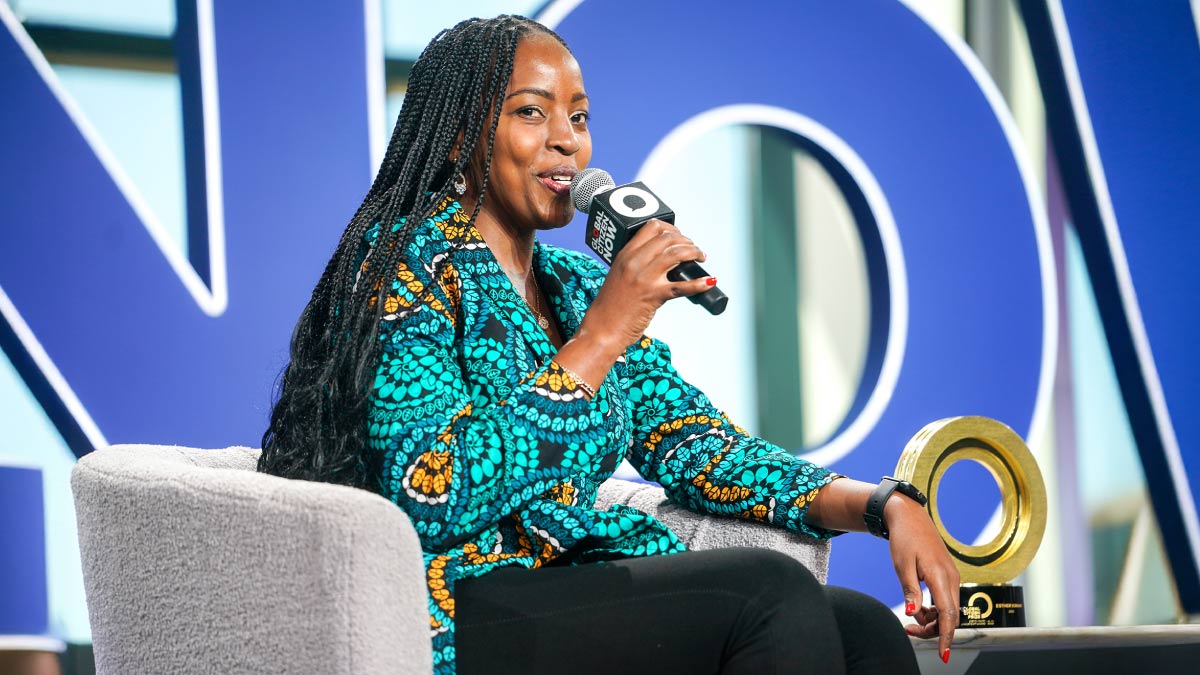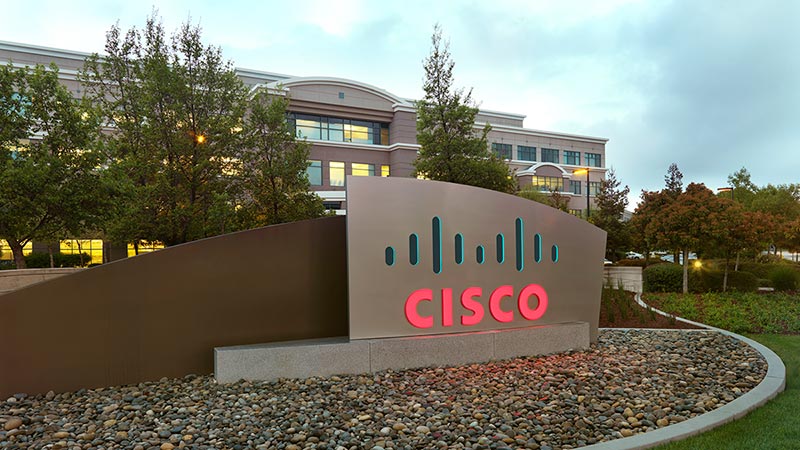Workforce development, cybersecurity, digital equity, reimagining government services, supporting critical infrastructure — these were the key issues, in addition to politics, that took center stage during Cisco’s sponsorship of POLITICO’s “The Fifty: America’s Governors and throughout the National Governors Association (NGA) 2023 Winter Meeting in Washington, D.C.
Cisco’s Rachel Barger, SVP of Americas Sales, kicked off the agenda of one-to-one interviews between reporters from POLITICO and governors from across the country. Fran Katsoudas, Cisco’s EVP and Chief People, Policy, and Purpose Officer, sat down with POLITICO for a conversation on how the tech industry is working with states on issues ranging from the digital divide and broadband to cybersecurity and workforce development, noting at the event: "Technology is moving a lot faster than people or skills…there is an amazing opportunity for us to really help our people across the US have the skills and the opportunities that really provide a different…life for many people, which is just amazing. I think we can really double down on digital skills."
Very quickly three key priorities became apparent.
Digging in on workforce development
Companies choose to invest in states across the country for a variety of reasons, but a top priority today is a skilled workforce. Workforce shortages have reached a crisis point for the U.S. economy, and the technology and cybersecurity skills gaps are major pain points.
“All governors and the private sector want to build an educated, capable workforce because we’re facing an unprecedented cross-industry skills shortage across the country,” says Gary DePreta, Vice President for State, Local Governments, and Education, Cisco. “Workforce development unlocks meaningful opportunities for individuals, and investing in upskilling and reskilling in states drives economic development — and jobs create taxpayers and taxpayers fund government. So this issue is paramount for every governor.”
According to an October 2022 report by the National Association of State CIO’s (NASCIO), workforce is among the top 10 policy imperatives for state governments. One way Cisco is addressing the workforce challenge is through Cisco Networking Academy, which has equipped 17.5 million students across 190 countries with quality networking and cybersecurity skills since it began 25 years ago.
Cisco’s Rachel Barger, SVP of Americas Sales, spoke with governors on Cisco Networking Academy’s impact and discussed how states can double, or even triple, the learners trained in their states.
“At Cisco, we don't only partner with state and local governments and entities around these programs, we also have customers that are in the private sector looking to fill these jobs,” Barger says. “We have the opportunity to be that bridge to connect the private sector with Cisco Networking Academy trained students, who then can take advantage of the higher-paying jobs in the technology sector.”
Investing in cyber resilience
The U.S. is grappling with an estimated 700,000 vacancies in cyber-enabled jobs.
“Cybersecurity is top of mind for every single state and local government out there, and it’s an area we are really leaning into,” says Barger. “We try to help them identify skills gap areas and, with Cisco Networking Academy, reskill for the future in cybersecurity.”
Cisco has recently upped its commitment to narrow this critical gap. For example, it aims to provide digital and cybersecurity skills training to an additional 25 million learners over the next 10 years through Networking Academy. It has also committed to train an additional 200,000 students in the U.S. over the next three years for cyber-enabled jobs.
Meanwhile, as part of the Infrastructure Investment and Jobs Act (IIJA), the U.S. federal government authorized the State and Local Cybersecurity Improvement Act, which established the State and Local Cybersecurity Grant Program, providing state and local governments with access to $1 billion in federal funding over four years.
As one of the largest security providers in the world, Cisco also offers a variety of programs and tools to help states, from help with grant funding through the Cisco Public Funding Office, to a deep bench of support featuring expertise in offense, defense, and special teams.
Cisco also works alongside state agencies for immediate impact in cybersecurity planning. And we partner with governments to help them leverage Cisco’s Talos Incident Response Services to proactively assess, strengthen, and evolve incident readiness.
Extending connectivity and addressing digital inequity
U.S. industry and policymakers have been discussing the digital divide for decades, but the COVID-19 pandemic laid bare both the pervasiveness and complexity of digital inequities in the country. For example, the rapid switch to virtual environments for students and teachers in the pandemic highlighted the uneven access to broadband. And it’s not just a problem in rural areas, as was widely believed in the past, but also extends to urban areas. For example, 82% of the U.S. Historically Black Colleges and Universities (HBCUs) are situated in broadband deserts.
Cisco’s approach is to help communities in whichever form they’re expanding connectivity. For example, Cisco recently announced a partnership with the City of Fort Worth, Texas, to expand neighborhood Wi-Fi to five under-connected neighborhoods, resulting in greater digital inclusion for an estimated 40,000 residents. As another example, Cisco is deploying 5G on the Claflin University campus in South Carolina, providing connectivity to South Carolina State University (another HBCU) and extending connectivity nearly two miles into the surrounding community.
“But we also recognize we can't do it alone,” DePreta says. “It takes a village. It takes collaboration between industry and government leaders, and the communities coming together as a willing partner.”
Key to success is then sharing these use cases with state governments and other stakeholders in order to inspire them.
“Oftentimes, what government leaders want to hear is what their peers in other states are doing on these topics,” DePreta says. “Cisco can bring to the table an expertise through our experiences supporting other states that gives us great credibility on how we can help them solve their challenges.”
The build-out of broadband is a bipartisan issue. Under the Biden administration, the IIJA puts $65 billion towards broadband in the U.S.
“That’s a multi-year journey for sure,” DePreta says. “But it’s our government coming together and solving a problem that can’t be solved alone by the private sector, and that's going to make a huge impact over the next decade on digital equity.”
Barger says the work Cisco does with both state and local governments offers critical support that also provides best practices.
“Each state — no matter if they're Republican or Democratic or somewhere in the middle — has the same needs to reach their constituents,” Barger says. “They're going to do it in different ways, but the technical infrastructure we can provide is a solid blueprint for them.” The POLITICO event featured New Hampshire Gov. Chris Sununu, Illinois Gov. J.B. Pritzker, North Carolina Gov. Roy Cooper, North Dakota Gov. Doug Burgum, Washington Gov. Jay Inslee, and Minnesota Gov. Tim Waltz.



